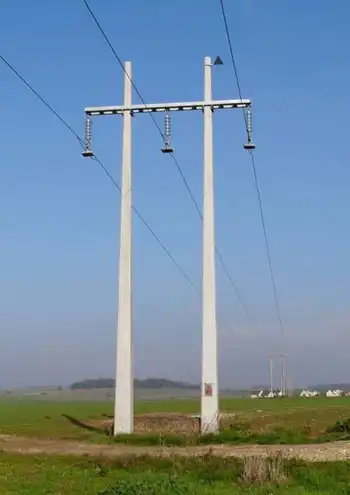No easy fix to turbine complaints
VINALHAVEN ISLAND, MAINE - The top executive of the company that installed wind turbines on Vinalhaven island said his experts disagree with a Maine Department of Environmental Protection consultant who concluded the turbines violate nighttime noise limits.
Fox Islands Wind CEO George Baker said his experts reviewed the same data and concluded that the three turbines do not violate state standards.
State law sets a 45-decibel limit. Fox Islands believes the discrepancy lies with naturally occurring ambient noises such as winds rustling through the trees, not the turbines themselves.
"There's a disagreement among the experts about what the data says is going on," Baker told The Associated Press.
Baker said it will be a difficult issue to resolve.
Even if experts conclude the wind turbines are to blame, slowing the turbine blades to lower the noise level by a couple of decibels may not appease critics, Baker said.
Meanwhile, slowing the blades too much could counteract the project's goal of reducing electric rates, which have been lowered by 5 cents per kilowatt hour on Vinalhaven and North Haven islands, Baker said.
"The turbines can simply be turned down more. The consequence is that they produce less electricity at night, and electric rates on the islands will go up," he said.
Art Lindgren, a critic who lives a half-mile from the turbines, said Fox Islands Wind has refused to open its books to prove how much money is actually being saved.
Transmission companies are required to open their books to the Maine Public Utilities Commission. But there's no such requirement for electricity producers like privately owned Fox Islands Wind. Baker said he opened his books to islanders in December, but his lawyers advised against doing it again because of threats of litigation.
As for the noise, Lindgren said it has ruined the value of his property.
"It doesn't matter what I think about the noise. I'm a homeowner. It matters what a prospective buyer might think about the turbines," he said. "My property is worthless now."
Related News

Electric Motor Testing Training
TORONTO - Our 12-Hour Electric Motor Testing Training live online instructor-led course introduces students to the basics of on-line and off-line motor testing techniques.
September 10-11 , 2020 - 10:00 am - 4:30 pm ET
Our course teaches students the leading cause of motor failure. Electric motors fail. That is a certainty. And unexpectded motor failures cost a company hundreds of thousands of dollars. Learn the techniques and obtain valuable information to detect motor problems prior to failure, avoiding costly downtime. This course focuses electric motor maintence professionals to achieve results from electrical motor testing that will optimize their plant and shop operations.
Our comprehensive Electric Motor Testing course emphasizes…




